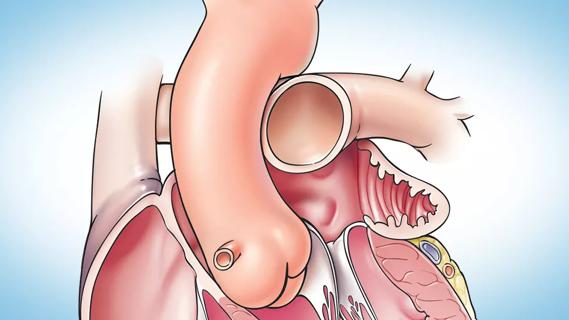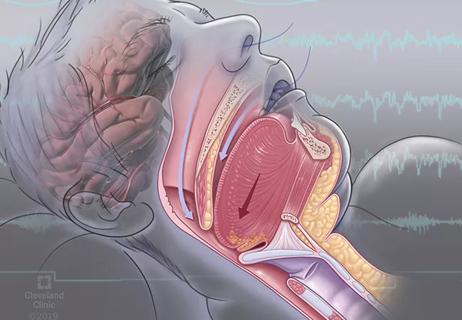While results were negative for metformin, lifestyle counseling showed surprising promise

Clinicians who counsel patients on lifestyle changes and provide them with written information may wonder if their words have any impact. But it turns out that patients may be positively influenced by these actions after all.
Advertisement
Cleveland Clinic is a non-profit academic medical center. Advertising on our site helps support our mission. We do not endorse non-Cleveland Clinic products or services. Policy
That’s a key takeaway from initial results of the recently presented TRIM-AF study (Targeting Risk Interventions and Metformin for Atrial Fibrillation), a Cleveland Clinic investigation unveiled at the American Heart Association’s scientific sessions in late 2024. Although the study yielded negative findings for the interventions being assessed — i.e., patients with atrial fibrillation (AF) who took metformin or received lifestyle interventions did not fare better than those who received standard of care — it nevertheless offers noteworthy implications for the treatment of AF.
The researchers were surprised that standard of care, which included simple educational counseling on healthy diet and exercise, made a difference in reducing AF burden. “One thing we learned is that our patients may actually listen to us, and that just making lifestyle changes as a result of counseling or informational handouts could produce some benefit,” says lead investigator Mina Chung, MD, an electrophysiologist at Cleveland Clinic.
The study also highlights the importance of randomized trials to evaluate promising interventions for AF, she adds.
Genomic studies have suggested that metabolic stress may play a role in AF, leading researchers to focus on both medical and lifestyle strategies that act on AMP kinase, a metabolic stress regulator, as a potential treatment strategy. In addition, previous retrospective and observational studies of people taking metformin — which targets metabolic stress pathways — for diabetes have suggested it could offer benefits against AF.
Advertisement
TRIM-AF was a single-center (Cleveland Clinic) study undertaken to assess metformin’s potential benefits in this setting in a more formal way, using a prospective, randomized, open-label design. Researchers randomly assigned 149 adults with AF and a cardiovascular implantable electronic device (CIED) to one of four treatment groups:
Because all participants had a CIED, the researchers were able to record their daily AF burden, which was the study’s primary endpoint.
After one year, researchers found that AF burden improved across all groups and that lifestyle modification and metformin did not offer any significant benefit in burden over SOC. In fact, AF burden improvement from baseline was somewhat greater in the SOC arm alone than in the arms that included metformin therapy.
Dr. Chung and her coinvestigators were initially surprised that the SOC group did so well, though she notes that all groups received some discussion about lifestyle/risk factor modification during recruitment and this was then supplemented by written materials in the SOC group. “Even without follow-up counseling, this simple intervention may make a difference,” she says.
Advertisement
In addition, at least one-third of patients who were taking metformin stopped the drug due to side effects. “Even though there are retrospective data suggesting there might be benefits, at this time we cannot recommend using metformin as a primary therapy for atrial fibrillation,” Dr. Chung says.
The lowest AF burden at the end of the study was in the group assigned to lifestyle/risk factor modification. Although the change in AF burden in this group wasn’t statistically greater than in the other groups, patients who received lifestyle/risk factor modification (with or without concurrent metformin) had significantly greater improvements in self-reported AF symptom scores relative to the SOC and metformin-alone groups. “People seem to feel better after making diet and exercise changes,” Dr. Chung says, adding that lifestyle/risk factor modification participants lost a modest amount of weight although they did not reach weight-loss targets.
Along with the above clinical takeaways, TRIM-AF highlights the importance of conducting randomized controlled trials for therapies that may appear promising, Dr. Chung says.
She notes that previous research in heart failure and hypertensions also suggested that statins and ACE inhibitors might offer secondary benefits for AF. “But when they were actually tested in a randomized trial for AF, no differences were detected,” she observes. “The same thing appears to be happening with metformin.”
“Despite TRIM-AF’s failure to suggest a benefit from metformin in AF prevention, it does highlight the importance of performing randomized trials to test therapeutics,” adds Cleveland Clinic electrophysiologist Robert Koeth, MD, PhD, who wasn’t involved in the study. “One interesting finding was that all the study groups lost weight, and this was associated with a decrease in AF burden. This suggests that other novel therapeutics for weight loss/diabetes, such as the GLP-1 agonists, may potentially provide benefit in the prevention and treatment of AF.”
Advertisement
Dr. Chung notes that TRIM-AF is a two-year study and that she and her coinvestigators continue to follow its patients and will soon report two-year results. “We don’t know whether any of these interventions, including metformin, might actually start kicking in and performing better with longer-term continuation,” she says.
The trial faced challenges because it was impacted by the COVID-19 pandemic, leading to fewer patients being enrolled and some lifestyle modification sessions being shifted to remote settings, she notes.
In addition to continuing with the TRIM-AF study, the team has several follow-up studies planned.
“We collected some stool samples for microbiome studies,” Dr. Chung says. “We also have blood samples to look at various biomarkers and ‘-omics’ analyses to compare those who responded and those who didn’t. The data we collected are fairly unique and promise interesting insights in daily AF burden, long-term longitudinal changes and what happens after interventions like cardioversion and ablation.”
Advertisement
Advertisement

LAA closure may be compelling option in atrial fibrillation ablation patients at high risk of both stroke and bleeding

UK experts compare and contrast the latest recommendations

Investigational pulsed-field ablation system also yielded procedural efficiencies

Concomitant AF ablation and LAA occlusion strongly endorsed during elective heart surgery

ACC/AHA panel also upgrades catheter ablation recommendations

For the first time, risk is shown after accounting for underlying contributions of pulmonary disease

Retrospective analysis finds “hypoxic and sleepy” subtype to confer greatest risk

Network proximity and EHR analyses identify diabetes drug as a top candidate for risk reduction